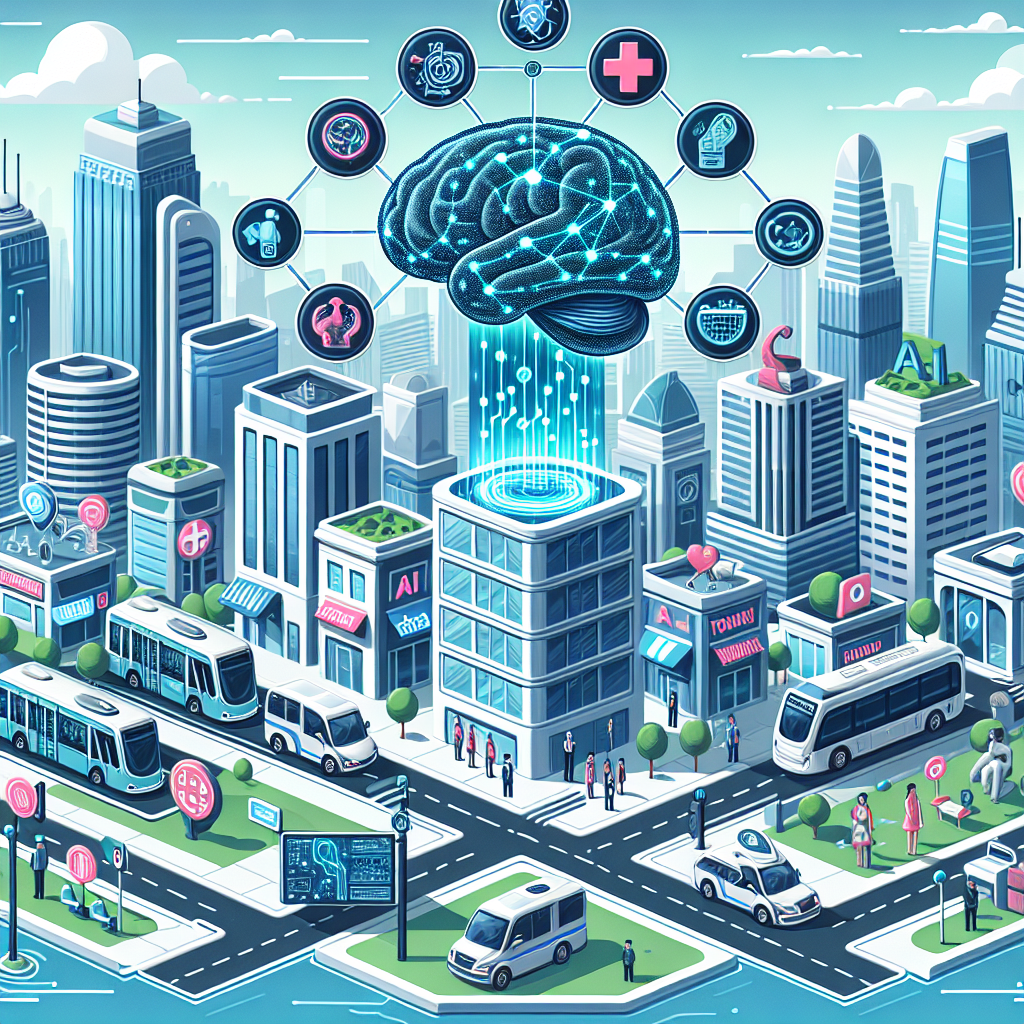Artificial Intelligence (AI) has been revolutionizing various industries, and the public sector is no exception. The use of AI in public service delivery has the potential to greatly improve efficiency, effectiveness, and accessibility of government services. From healthcare to transportation to education, AI has the power to transform the way public services are delivered.
AI in Healthcare
One of the most promising applications of AI in public service delivery is in healthcare. AI-powered tools can help healthcare providers make more accurate diagnoses, predict patient outcomes, and personalize treatment plans. For example, AI algorithms can analyze medical images to detect diseases like cancer at an early stage, leading to better patient outcomes.
AI can also improve the efficiency of healthcare services by automating routine tasks, such as scheduling appointments and processing insurance claims. This can free up healthcare providers to focus on more complex and critical tasks, ultimately leading to better patient care.
AI in Transportation
Another area where AI is making a significant impact in public service delivery is transportation. AI-powered technologies like self-driving cars and traffic management systems can help reduce traffic congestion, improve road safety, and enhance public transportation services.
Self-driving cars, for example, have the potential to reduce accidents caused by human error, which is one of the leading causes of traffic-related deaths. AI-powered traffic management systems can also optimize traffic flow, reduce congestion, and improve the overall efficiency of transportation networks.
AI in Education
AI is also changing the way education is delivered in the public sector. AI-powered tools can personalize learning experiences for students, identify areas where students may be struggling, and provide real-time feedback to teachers. This can help improve student outcomes and make education more accessible and inclusive.
AI can also help streamline administrative tasks in education, such as grading assignments and managing student records. This can free up teachers and administrators to focus on providing high-quality education to students.
Challenges and Considerations
While the potential benefits of AI in public service delivery are significant, there are also challenges and considerations that need to be addressed. One of the main concerns is the ethical implications of using AI in public services. For example, there are concerns about bias in AI algorithms, data privacy and security, and the potential impact of automation on jobs.
It is important for policymakers and public service providers to carefully consider these ethical and social implications when implementing AI technologies. Transparency, accountability, and fairness should be key principles guiding the use of AI in public service delivery.
Another challenge is the need for upskilling and reskilling of public service workers to adapt to the changing technological landscape. As AI technologies become more prevalent in public services, workers will need to develop new skills to effectively leverage these technologies and provide high-quality services to the public.
FAQs
Q: How can AI improve public service delivery?
A: AI can improve public service delivery by automating routine tasks, personalizing services, improving efficiency, and enhancing accessibility. AI technologies can help public service providers make more informed decisions, deliver services more effectively, and ultimately improve outcomes for citizens.
Q: What are some examples of AI applications in public service delivery?
A: Some examples of AI applications in public service delivery include healthcare diagnostics, traffic management systems, personalized education tools, and automated customer service. These AI-powered technologies can help public service providers deliver high-quality services to citizens in a more efficient and effective manner.
Q: What are some of the challenges of using AI in public service delivery?
A: Some of the challenges of using AI in public service delivery include ethical concerns, bias in AI algorithms, data privacy and security issues, and the impact of automation on jobs. It is important for policymakers and public service providers to address these challenges and ensure that AI technologies are used in a responsible and ethical manner.
In conclusion, AI has the potential to greatly improve public service delivery in various sectors, from healthcare to transportation to education. By leveraging AI technologies, public service providers can enhance the efficiency, effectiveness, and accessibility of government services, ultimately leading to better outcomes for citizens. However, it is important for policymakers and public service providers to carefully consider the ethical and social implications of using AI in public services, and to ensure that workers are equipped with the necessary skills to adapt to the changing technological landscape.

